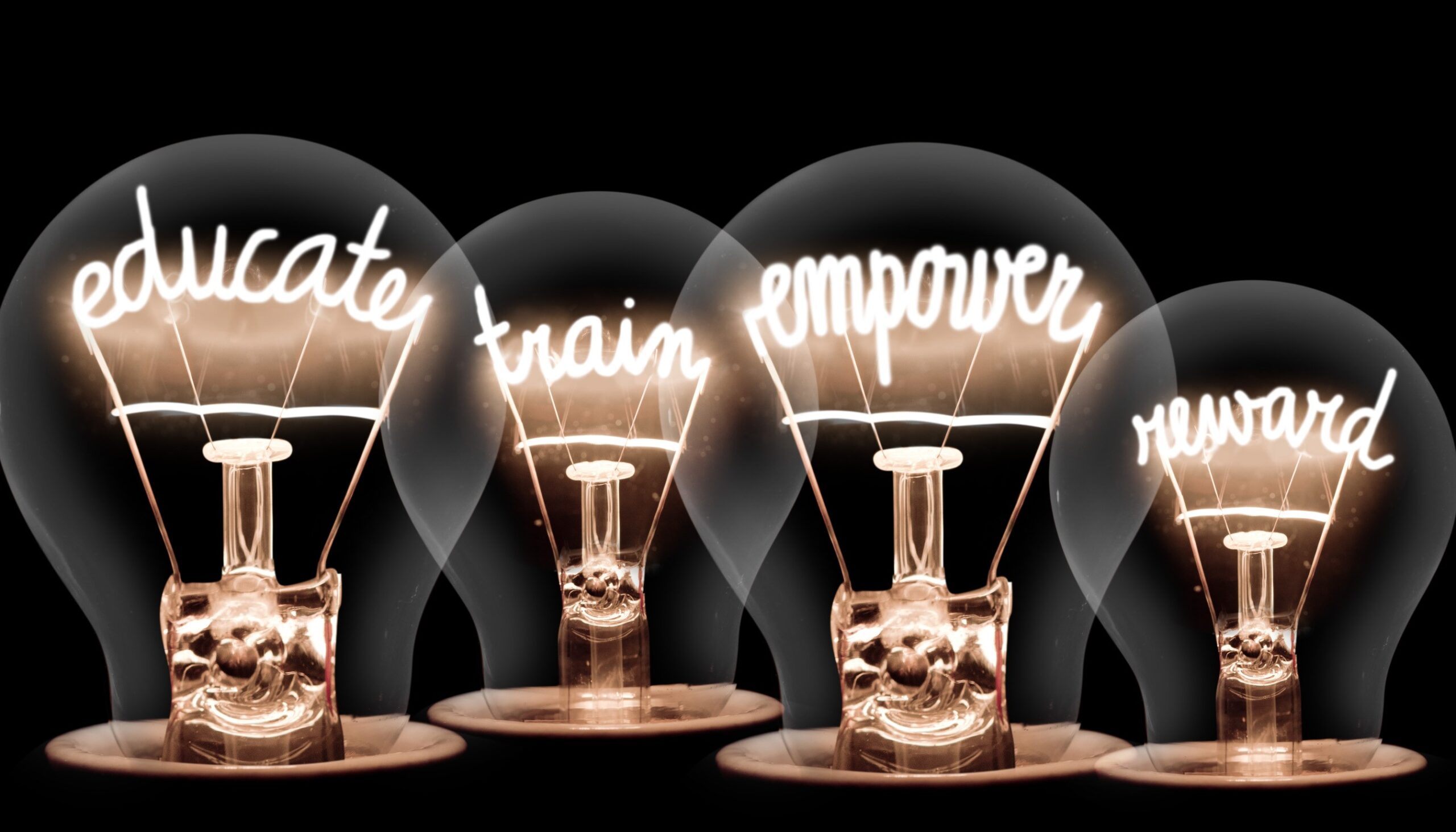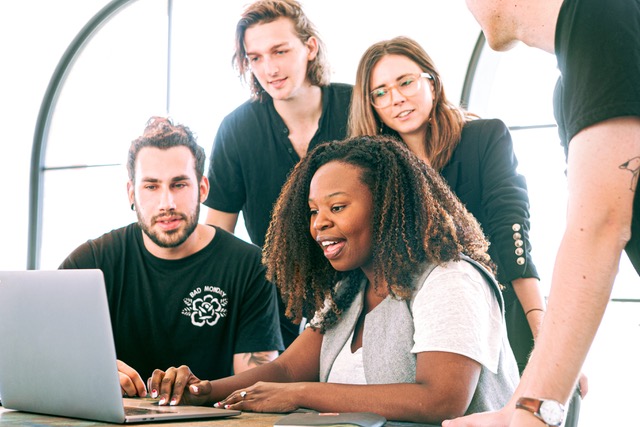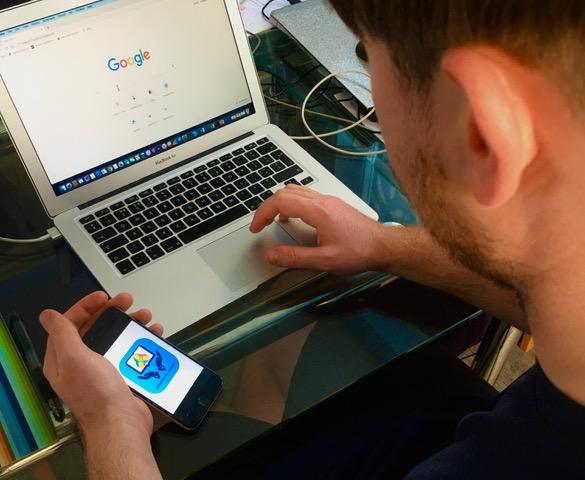Bringing Personalisation into Education and Employment
The Empowerment Passport is a digital platform enabling individuals with long term health conditions or disabilities think about and communicate their unique adjustment needs in any of the following settings:
- Education (school/college/university)
- Employment (part-time/full-time, temporary, or permanent)
- Any transition (between education to employment, or one job to another)
A companion document for life, the Empowerment Passport enables best practice whilst unlocking one’s potential.


Empowerment Passport Pilot with the NHS
We are very proud of our collaboration with Health Education England and NHS Employers, since April 2022. The team here at the Empowerment Passport are keen to carry on and expand this support to the NHS family. The positive benefits of this initiative can be read here in the independent Rapid Evaluation Report. Click here to view PDF.

Why an Empowerment Passport?
Often, the issue of trying to explain the impact of a condition or disability on day to day activities can be challenging for the individual, particularly at times of change, such as a new teacher, manager, or new environment.
Disclosure of a health condition or disability can be stigmatising for many. It causes anxiety about negative perceptions and assumptions of a person’s capabilities. For example, assuming all dyslexic people have problems with spelling, or assuming all Deaf people can automatically read English.
The Empowerment Passport makes sure there is no room for assumptions, stigma, or embarrassment.

Who Owns the Empowerment Passport?
The individual or Passport holder owns it. They have the freedom to change or update information within their Empowerment Passport. They decide who sees their passport, they decide when they share their passport and how it is shared.
The Empowerment Passport can travel with the individual into school, college, university, and employment. Indeed, whenever there are changes to their role or environment.
It can be shared prior to a job interview to facilitate adjustments to enable best practice for inclusive interview processes.
It can be shared once already in a job, to ensure adjustments are provided in a timely manner.
An ‘Action Plan’ is provided with every license to ensure a robust process, and clear documentation of all all agreed adjustments, reducing the risk of discrimination.
Testimonials
“From an employer’s point of view its extremely useful to have this Empowerment Passport and develop the action plan with my employee, because it helped me get a better understanding (as an employer) in terms of this individuals’ needs and also to consider the needs of the business.
I found it invaluable so I would recommend the Empowerment Passport to any employer looking to employ someone with autism and learning disabilities I feel it would be extremely beneficial “.
“The Empowerment Passport has been fantastic for students on the Digital Supported Internship. Our course supports SEND students into employment in the digital and creative sectors, and many of the learners feel confident showing their Empowerment Passport to new employers. The Empowerment Passport is a brilliant working document which allows our students to adapt the document throughout their work experience. Many students haven’t had work experience, and this allows them to adapt the document whilst they are learning how they want to be supported at work. I have already recommended The Empowerment Passport to other educational settings and charities, and everyone I have spoken to about the Empowerment Passport is always keen to get involved. I think this is because the concept is truly person-centred and has an innovative approach to supporting young people. Mandy has been great to work with and it has been wonderful to see how her work has truly empowered the young people I work with.”
“I suffer with social anxiety because of my autism, and working in groups is uncomfortable for me. Sometimes we do need to get the group work done, I realise this. However, it’s not always essential for the course content, which is why I chose the subject least likely to cause me these type of problems. I like that if I need to attend group work, I can simply email this Passport to the tutor beforehand so they know what my situation is, and we can then have a conversation about how I will manage the group work.
My Disability Student Assessment isn’t sensitive enough to share the nuances of my condition. I participate in my course fully but sometimes it’s not equipment I need, but simply some low-level adjustments that don’t involve money, and shouldn’t take a long time to implement.”
“I loved using the Empowerment Passport website. It is easy to use, and I didn’t have to fill in anything I didn’t feel comfortable with. I will use this when I start my work experience because sometimes, I don’t feel comfortable telling people about my disability, especially someone I don’t know very well. I like that I can change this on the website and also that I can choose when to show it to people at college or work.”
“I would have found it very beneficial to have had access to a tool such as the ‘Empowerment Passport’ when I embarked on my career as a health professional making the transition from University student to applying for jobs and working in the NHS.”
“I found that there were frameworks in place to support me from the beginning, in contrast to the uncertainty of the world of work and how employers might react to my disability. If an Empowerment Passport had been an option for me, I would have had more confidence in approaching employers to discuss my health condition, and in asking for what I need.”
“I think the Empowerment Passport should be promoted by Occupational Therapists, because it would be really useful for Occupational Health & Human Resources.”
“As a team, we feel the Empowerment Passport would benefit some of the clients we work with on an individual basis in the community who are currently seeking or in employment, and we would like to continue trial use of the passport in this way?”
“I liked meeting Mandy and going on the website because it was easy. Mandy was fun and she told us a story about her son and why she started the website. I think it’s clever because I can tell people what I need help with when I’m at work. Thank you Mandy!”







